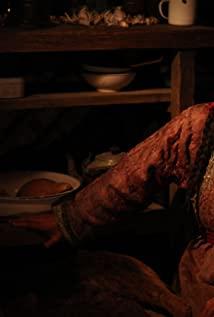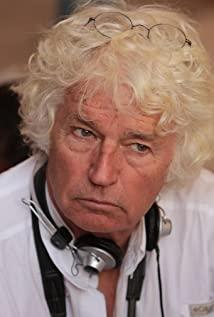During the Spring Festival, I watched two films adapted from Chinese novels directed by foreign directors. One was "Xu Sanguan" directed and starred by South Korean actor Ha Jung Woo, and the other was directed by French director Jean Jacques Arnault. "Wolf Totem".
The two novels have similar backgrounds, but their values are different. For the original party, perhaps the most anticipated point is to see how foreigners will adapt these two very distinctive Chinese novels. To be honest, Ha Zhengyu’s adaptation is somewhat disappointing. He basically weakened the suffering of the characters in the novel. Xu Sanguan’s story has become a relatively simple family ethics drama. In one sentence, it may be, The healing process of a straight male cancer patient. The problem is that this can be any story, but it is not Yu Hua's story anymore.
In contrast, the adaptation of "Wolf Totem" was successful. The film basically abandoned the discussion of values, or in other words, simplified the discussion of the endless value of the novel, and discussed one theme, the relationship between man and nature. What I actually want to discuss is this movie and the book behind it.
The difference between a movie and a book In The Paper
, I saw a film review about the movie "Wolf Totem" with a direct title, "I don't like the novel "Wolf Totem", but I like its movie very much." Movies are liked and novels are hated. This contradiction can only be interpreted from the adaptation of movies. The director chose this thick novel, focused on exploring the relationship between man and nature, and abandoned other value discussions.
But if you read the original book, you will know that this kind of adaptation is actually like the movie "Xu Sanguan", it is also a kind of "avoid the important and the lighter". This movie discarded or greatly weakened another set of values discussed repeatedly in the book, that is, the so-called wolf spirit. Regarding the discussion of wolf spirit, probably only this section remains in the movie, which is a dialogue between the protagonist Chen Zhen and Mongolian Abba while observing the hunting of yellow sheep by wolves. It probably means that the wolf is an extremely intelligent and united animal. They have a strict hierarchy, obey orders, are brave, have a team spirit, are tough, and have patience... But the Mongols have learned this from wolves. Spirit, this is the reason why Genghis Khan was invincible. In contrast to the wolf spirit of the prairie people, it is the sheep spirit of the farming people. There is only one paragraph in the movie about the discussion of this wolf spirit, but it is full of stories in the novel.
This wolf spirit is praised by the author Jiang Rong, and it has risen to the height of national transformation. And this concept is also very marketable in China. You may not have read this novel, but you have probably heard someone discussing wolf spirit with you. You will also see a lot of such enthusiasm in the book reviews of this book. Full of discussion. In this book, people seem to have found the historical shortcomings of the Chinese nation and the way out for the future.
The film’s taste for the wolf spirit will stop. This may be a deliberate choice of the director, because a movie about two themes can easily distract the audience’s attention, and I think the more important point lies in the wolf spirit and environmental protection. , These two themes are actually contradictory, this topic will be discussed later, please click here.
Of course, there is another possibility that the novels the director has read are different from the novels we have read. Film critic Uliji said: "Why is this book'selling' in overseas markets? It attracted French director Jean Jacques Arnault. I think the reprocessing of translation has played an important role in the promotion of "Wolf Totem" in the global book market. It is very useful. I have read the English version, French version, and the new Mongolian version, and I have the same feeling. Compared with the original, this new feeling continues to the movie "Wolf Totem". "
This renewal, I think, should be to abandon the discussion about wolf spirit, jump out of nationalism, and focus on the discussion about the relationship between man and nature. Because this book has encountered setbacks in the process of overseas promotion, especially in Germany. The wolf spirit in the book is something that German cultural scholars are wary of. When this book was popular, German Sinologist Gu Bin once talked about his views: The problem with "Wolf Totem" lies in language, form, and mental consciousness. It is always repeating concepts such as "blood", "land", and "strong man". If the claims in the book are representative and welcome in China, then this is the disgraceful side of the Chinese. In the eyes of Germans who grew up after World War II, these words are closely linked to fascism.
This is the difference between movies and books.
The spirit of the wolf and the spirit of the man
has a production team director in the movie, and we can regard him as a reflection of the atmosphere of a certain era. His words and deeds are often the destruction of traditional customs formed by herders for thousands of years, not only destroying the way of life, but also destroying nature. And behind this director, there is a so-called superior, and all he conveys are orders from superiors, and the herdsmen can only obey. And the director of the production team himself was nailed here like a screw.
So the question is, are people willing to obey such orders? Are you willing to accept such an arrangement against your will? I don’t think many people would be willing. However, this is exactly what the wolf spirit advocates. Unite as one, obey orders, and sacrifice individuals for the collective. I think this kind of spirit is okay in the army, but it is very scary to build it into the character of a nation.
Another confusing place is that people may hate the production team director so much that they can't wait for him to be eaten by a wolf. But people are very willing to worship the wolf spirit, hoping that our nation has the iron-blood spirit like a wolf. The reason may be that the production team director is a specific person, full of flesh and blood, and it is easy for us to distinguish right from wrong with him. The so-called wolf spirit is a bit volley, very grand, very distant, and very sacred. It is easy to believe that under the guidance of the wolf spirit, we will move towards happiness, but the problem is that such guidance will often make you lose your freedom.
The influence of wolf spirit is not only internal but also external. Just like in our traditional culture, wolves are attributed to cunning, cruel, and slaughter... Even the nomads who advocate wolf spirit love and hate wolves. That's why they have the custom of hunting wolves and digging out wolf cubs. But don't forget, this is just a wolf, with limited destructive power. What if you put such a habit on people? External attacks are just a natural thing.
Should we have a wolf spirit? I think this is a question of degree. Because of this spirit, many interpretations could have been made. It can be interpreted as aggressiveness or ambition; it can be interpreted as perseverance or cruelty. The question is whether there are constraints. The individual’s wolf spirit is okay within the legal framework. The wolf spirit of the enterprise is no problem within the legal framework. Individuals who do not agree with this concept can also choose to leave. However, when a nation or a country is propagating this spirit, and the goal they desire to conquer is outside, the problem becomes big because it is difficult to restrain, and individuals are often trapped in it and cannot leave.
No matter how we judge the wolf spirit in terms of values, the fact is that this spirit will still appear when it should appear. What kind of soil will nurture this spirit? I don’t think we can do without the harsh and barren environment. Whether it is the Qin State that unified China, or the nomads who have repeatedly entered the Central Plains, their material resources are scarce compared to the goals they want to conquer. Not to mention Nazi Germany during World War II, which itself was a product of sanctions. Then there are killings and wars, and then, regardless of victory or defeat, they will abandon the so-called wolf spirit and embrace a higher civilization. Even like the Manchus consciously preserve the tradition of riding and shooting, they can’t do it.
In my opinion, the so-called wolf spirit is nothing more than the projection of human nature on the wolf. In other words, it is self-sufficient. It's like the young school thinks that it has established a deep friendship with Tiger Parker, but for the rest of his life, do you think people will take care of you? There is a line in the movie "Interstellar": "Nature is cruel and terrifying, but you can't say it is evil. Just like a lion tearing apart an antelope, you can't say it is evil." The wolf is cruel. , Not evil, their behavior is based only on the instinct of survival. However, as rational people, we distill this instinct of natural creatures into a certain spirit to direct our behavior. If this kind of behavior brings great damage, can we just think that it is cruel, not evil?
The relationship between man and nature
eulogized the harmonious relationship between herders and the prairie in the movie. Humans, wolves, livestock, grasslands...Every link of the biological chain is vital. The disappearance and growth of any link is a natural disaster. If there are more wolves, there will be less sheep, if there are more sheep, there will be less grass, and if there are more people, then there will be nothing. This truth was realized through the survival of the grassland people for thousands of years. This feeling of harmony between man and nature seems very beautiful, but in essence it is still man adapting and transforming nature, and its purpose is always man rather than nature. Therefore, I feel that no matter how we call for environmental protection, we must not forget our purpose.
To be honest, this harmony between man and nature is not desirable. Because this life is always hard, this is also the reason why the nomads have been tempered into a wolf spirit, and they need to use this to fight against the cruel environment. And all outsiders, whether they are educated youths like Chen Zhen or later tourists, if they want to keep this way of life just to satisfy their own yearning for the unity of nature and man in their hearts, it is undoubtedly another cruelty. The yurt is beautiful but primitive, unruly but bumpy on horseback, living by water and grass, but drifting, we can't just consider the aesthetics and ignore the reality. Just like some scholars are saddened by the disappearance of the natural village, you want you to live.
I don’t think the grassland peoples live by water and grass. First of all, this method has gone through thousands of years of trial and error and gradually formed through trial and error. We don’t know how many mistakes have been made during this period. It is because in the past years, human beings have limited ability to transform nature, so they have to live in harmony with nature. Once the prairie people gain enough power, they immediately try to get rid of this way of life and desire to enter the Central Plains, so this is obviously not a pleasant way of life, although they have reaped the wolf spirit from it.
According to this logic, the policies for reforming the grasslands issued by the production team leaders are actually understandable in terms of purpose, and they all put human survival as the first priority. The problem is that the destructive power of modern civilization is too great, and nature does not have much space and time for people to try and make mistakes, so if it is wrong, the consequences will be catastrophic.
The crux of the problem does not lie in this. The key is that these wrong policies are not the result of the grassland people's independent choice, but are imposed on them, and then they bear the wrong consequences. The irony is that in that era, the huge machine that implemented the order was actually the spirit of the wolf that the author of "Wolf Totem" yearned for. The reason why an educated youth writer came to the grassland itself was also a product of obedience and unity. The suffering of the author comes from the spirit he eulogizes. This is a joke of fate. And the author took the initiative to praise that era, as if not, his youth would lose its meaning.
"Reading Library" once published an article written by Shu Ni, "Blue Wolf Land and White Deer Home". It talked about the division of the pasture back then. In 1958, the grasslands were divided into grasslands, just like the division of fields in other parts of the country. The herder's grazing range is fixed in this way, and the grazing radius is fifty to sixty kilometers. The days of living by water and grass are gone forever. However, the resources are not evenly distributed, the land is rich and barren, and the aquatic plants vary with different geographical environments and seasonal changes. Moreover, after grazing, the pasture also needs to rest and regenerate. All this determines the lifestyle of living by water and grass. Once the grassland is fixed, all of this will cease to exist. As a result, it will be fishing.
Nowadays, the degradation of the grassland has reached a very serious level, and the desertification makes the grassland look like a patient suffering from alopecia areata. So another policy came, a total ban on grazing. This method has two results. First, the economic life of the shepherd has been affected, and more importantly, this method may not be able to solve the problem. Just like the food chain we mentioned earlier, now that the livestock link is removed, is it necessarily a good thing for the grassland? The sowing, fertility, and growth of the grassland do not require the help of livestock. So this method is also against the laws of nature.
For the environment, neither mandatory destruction nor mandatory protection is desirable. On the one hand, the method taken for granted may not conform to objective laws. More importantly, coercion is an interference with human autonomy, which will harm human rights no matter what the purpose is. At this time we will find that whether we are united as one to plunder nature, or united as one but protect nature, in a sense, this is a product of a wolf spirit. What it infringes upon is human interests. As the philosopher Anrand said: “For people who lack thinking, such a slogan is indeed very pleasing:'Public interest is higher than any individual right.' But without individual rights, there is simply no way to have Public interest."
Choice
When people lose their right to choose, they also lose their way of life, the grasslands, and the wolves. As outsiders, we certainly can't demand that the cultural ecology never change in order to satisfy our emotions. But the right to choose between change and the same should be in the hands of the people living here, and only they have the right to decide whether to leave or stay. We have no right to compulsorily retain what they do not miss. We have no right to deprive them compulsorily.
The Mongolian historian Zhang Hongjie wrote: “I’m really afraid that hundreds of years later, when people talk about grasslands, they will say: It’s said that a long time ago, there was a vast grassland in northern China. Nationality. They wear a kind of robe called Mongolian robe, speak a language called Mongolian, live with horses in friendship, living by water and grass, living in a kind of white tent called yurt. They can sing a kind of grace and sadness. The long note. When the prairie is summer, when the mare cumin is served in a silver bowl and the bonfire is lit, they will bounce up Hubis, and let the sad long note cut through the silence of the prairie. In the singing, there are young girls. Rough love, there are friendships and conflicts between men, there are ancient wars and their leader Genghis Khan."
View more about Wolf Totem reviews











